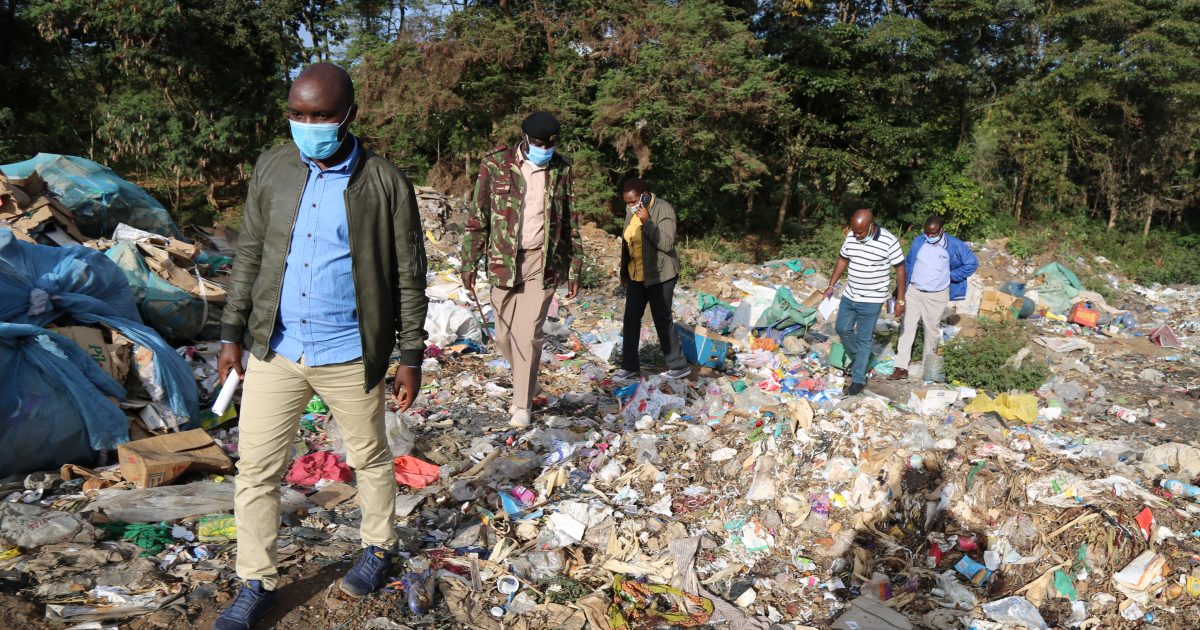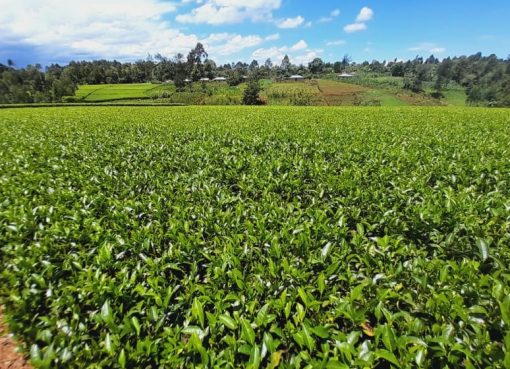Kitui Township dumpsite situated at the source of Kalundu River is choking on raw human, industrial and medical waste, which has replaced aquatic life forms and polluted the once clear waters.
Similarly, the river’s hydrology has been greatly transformed because of continued dredging and the canalization of the river by subsistence horticulture farmers growing vegetables and other crops along the river banks.

Photo: Yobesh Onwong’a/KNA.
Speaking today during a familiarization tour to reclaim the wetland once Kazi Mtaani kicks off, Kitui County Commissioner John Ondego lamented that the once riverine wetland has been reclaimed to create space for buildings, roads and other infrastructure.
Ondego said that the waters were so polluted they were unfit for human use and could only support limited aquatic life.
“The government will rehabilitate the Kalundu River and its network of tributaries by identifying and sustainably addressing sources of river pollution, reclaiming riparian land and initiating landscape management activities, which include tree planting,” said the County Commissioner.
He noted that the main source of pollution was from untreated industrial waste and raw sewage from informal settlements.
Ondego disclosed that degradation of wetlands is triggered by physical modification of the landscape, depletion of wetland biological resources through over-exploitation, encroachment and settlement.
“Grabbing of wetlands along rivers that would have acted as water filters and replacing them with buildings is a major problem affecting all wetlands found in urban areas,” he pointed out.
He noted that solid waste from households and the adjacent Kalundu market has filled up the only landfill in Kitui Town resulting in the dumping of waste into the main Kalundu River.
The administrator said that the national government in collaboration with the county government has come up with a proper mechanism and policy that would involve the residents in the clean-up of the rivers through the National Hygiene Programme dubbed Kazi Mtaani.
“We need to sensitize people on garbage segregation beginning from their households through separation of solid waste, waste pickers and recycling industry to be streamlined and supported to ensure no waste reaches the rivers or surrounding areas,” he said.
Ondego appealed to the Kitui County Government to find an alternative site for their waste dumping to create room for the rehabilitation of the Kalundu River Ecosystem, fence off the area and plant ornamental trees for recreation.
Kitui Municipal Manager Job Muisyo said that the Kalundu River basin has the potential of becoming a great tourist attraction and create thousands of jobs directly and indirectly by making public green spaces along the river that could continue to host a large variety of biodiversity found in the country.
Muisyo noted that segregating household and industrial waste at the source would ensure proper utilization of recyclable wastes.
By Yobesh Onwong’a





